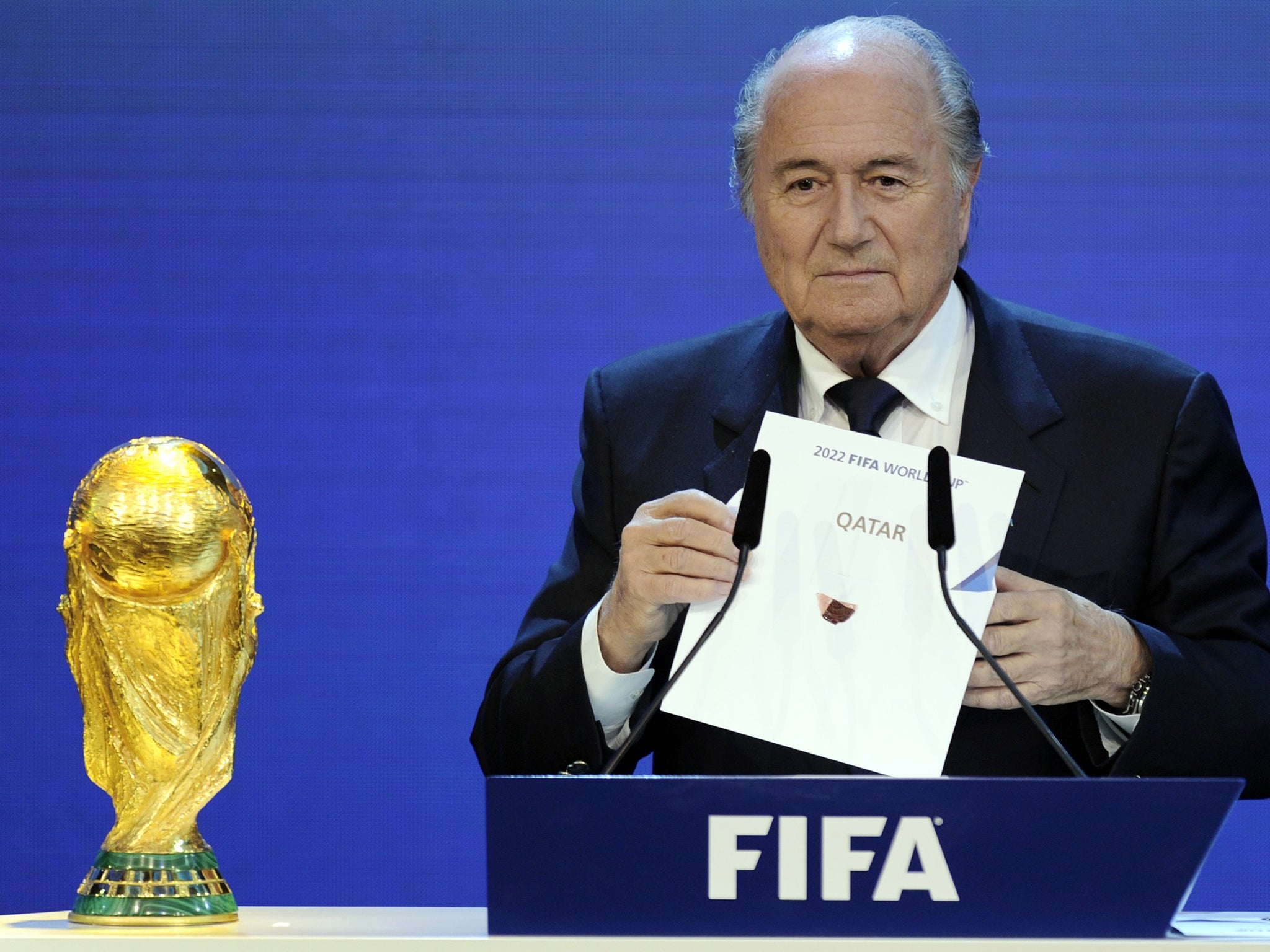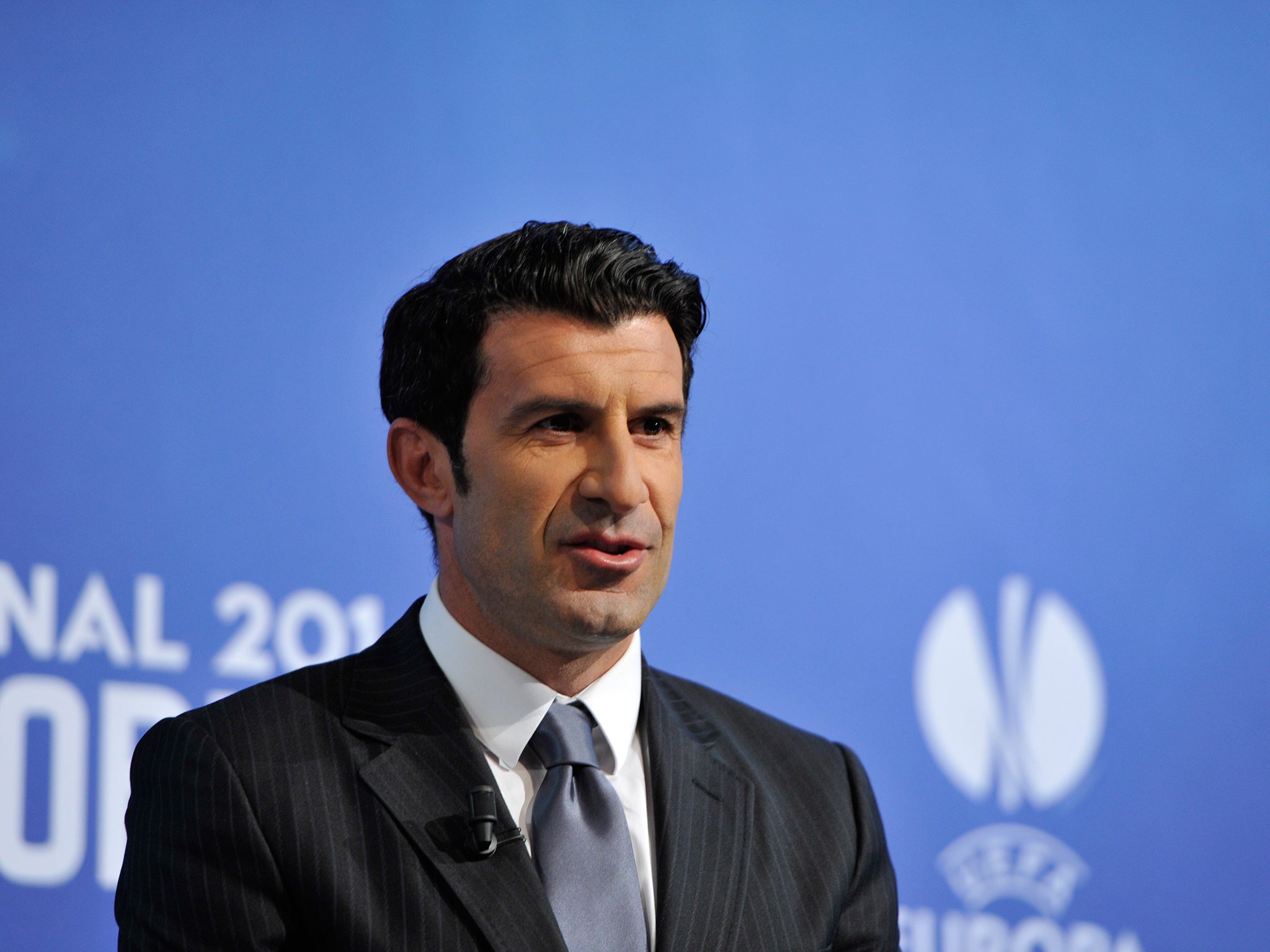Your support helps us to tell the story
From reproductive rights to climate change to Big Tech, The Independent is on the ground when the story is developing. Whether it's investigating the financials of Elon Musk's pro-Trump PAC or producing our latest documentary, 'The A Word', which shines a light on the American women fighting for reproductive rights, we know how important it is to parse out the facts from the messaging.
At such a critical moment in US history, we need reporters on the ground. Your donation allows us to keep sending journalists to speak to both sides of the story.
The Independent is trusted by Americans across the entire political spectrum. And unlike many other quality news outlets, we choose not to lock Americans out of our reporting and analysis with paywalls. We believe quality journalism should be available to everyone, paid for by those who can afford it.
Your support makes all the difference.“Something has to be done,” declared Luis Figo, almost quoting Lenin, as he entered the suddenly widening race to become the next president of Fifa.
“Something has to be changed,” he added. “Change in leadership, in governance, in transparency, in solidarity. Now is the time for that.”
Except, unfortunately, it’s not. For all the cries of a need for change, from British journalists, from Gary Lineker, from Dutch football administrators, from football fans and the like, the “football world” wants Fifa to stay the same, and barring unforeseen and extraordinary events between now and Fifa’s congress in Zürich in May, it will do that.
Figo, a former World Footballer of the Year, who has served on the Uefa football committee, is an infinitely more serious proposition than publicity-seeking David Ginola, but it will make no difference. “To be president of Fifa you need to understand Africa,” was the French Football Federation president Noël Le Graët’s withering response to Ginola’s little stunt, and the same sadly applies to Figo.

In fact, you do not even need to understand Africa, you just need to know that Africa loves Blatter and he cannot be defeated.
The commonly understood wisdom is that Blatter’s popularity on the continent has been directly bought in dubious deals. The reality is more complicated. For the most part, Africa’s love of Blatter is genuine and hardly surprising.
Those close to Fifa’s longstanding president suggest that it was during his visit to Ethiopia in 1976, a year after joining Fifa as a technical officer, that he became determined to bring the World Cup to Africa, something he finally delivered in 2010.
During that tournament in South Africa, he pointedly stood up for the beleaguered vuvuzela. “I have always said that Africa has a different rhythm, a different sound,” he said. “I don’t see banning the music traditions of fans in their own country.”
Fifa’s surging revenues under his presidency, £2.5bn from last year’s World Cup in Brazil, are spent more generously in Africa than anywhere else. The Goal projects, building football infrastructure in countries that need it, receive ample funding and there are hundreds of them, nowhere more than in Africa.
In 2013, Blatter stopped by in lowly Mauritania to visit a Fifa-funded project building television production units, allowing the nation to televise football matches. Of course, Blatter knows only too well that Mauritania, has one vote in Fifa’s presidential election, just the same as England, Germany, Portugal, the Netherlands, or any other voice crying out for change. Mauritania, on the other hand, has already seen change, and likes it.
Regularly, Blatter talks of giving more places at the World Cup to Africa and Asia at the expense of Europe and South America. Europe, he knows, is lost to him politically. And for all South America’s footballing power, it is a continent of 10 football-playing nations. Africa has 56 associations, Asia 41.
This time round Asia has its own candidate, in Prince Ali bin al-Hussein of Jordan, seen, somewhat laughably, given he is a prince of an ancient royal family, as “a moderniser.” Yet even he will be seeking support chiefly from Europe for his challenge. The Football Association has already confirmed that it will back him. Last year the Asian Football Confederation claimed it would be supporting Blatter “unanimously”.
For all the scandal that continues to rock Fifa around the decision to host the 2022 World Cup in the searing desert heat in Qatar, it is worth remembering that the furore is now more than four years old. It is only new details that are emerging. Even Britain’s representative on the Fifa executive committee, Jim Boyce, says Fifa is substantially reformed since those murky days.
But African and Asian football administrators do not care about the heat of Qatar. They care, for reasons fair or foul, about their own nations’ football future.
Asked if he could beat Blatter, Figo replied. “No one is untouchable.”
He is right. Figo, one of the great footballers of the last 20 years, still got nutmegged by John O’Shea once. He might expect to land some similar tiny humiliation or another on the mighty Blatter. Untouchable? No. But unbeatable? Yes.

Join our commenting forum
Join thought-provoking conversations, follow other Independent readers and see their replies
Comments